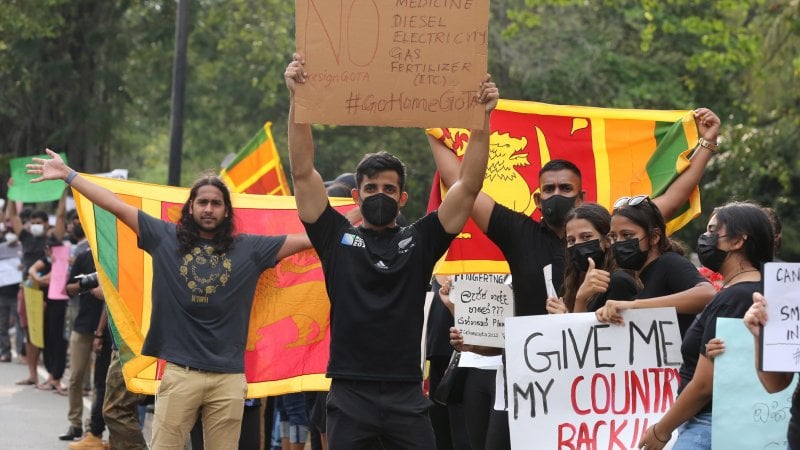The poorest are the victims of new tax increase
Colombo anticipates the timing and before approving the budget law announces the change in VAT from 15 to 18% from next year. In addition, some exemptions to essential goods and services will be removed, which will hit people and families in poverty the hardest, in the wake of the increases in electricity tariffs
Colombo (AsiaNews) - The government's decision to increase the value added tax (VAT) from 15% to 18% from January 2024 will - according to analysts - have a greater impact on the poor and the weaker sections of the population of Sri Lanka in general Lanka. It would be a further blow dealt in the wake of electricity tariff increases. Even the lower middle class will not be free from repercussions.
According to government cabinet spokesperson Minister Bandula Gunawardana, although tax revenues increased by more than 50% in the first nine months of 2023 compared to 2022, they have not yet reached the targets set by the International Monetary Fund (IMF).
As a result, Sri Lanka was unable to obtain the second tranche of international aid as the country was unable to achieve its set goals. It is to reach them that Colombo decided to increase VAT and extend its application to previously exempt goods.
Dhananath Fernando, economist and CEO of the Advocata Institute (an independent political think tank in Colombo), revealed to AsiaNews that "the VAT increase will increase the prices of goods and services indiscriminately, causing a contraction in demand as some people will no longer be able to afford the purchase of basic necessities such as rice and dhal (red lentils). The 3% increase in food prices does not have an equitable impact on various income groups. For example, it would affect both lower-income groups who spend a larger share of their income on food, and higher-income groups who spend a smaller share of their income on food expenses. Therefore, low-income groups will have less to spend on other needs, including essential medicines and expenses for their children's education. Due to these distortions, the scope for corruption and the possibility of traders attempting to evade increases, which could impact tax revenues even more.”
Dhananath Fernando is convinced that these tax policies do not respect the four fundamental principles of taxation: simplicity, transparency, neutrality and stability.
“The principle of simplicity in our system – he explains – is deviated due to distortions in taxes, tariff lines and various rates, the complexity of which makes it difficult for individuals to orient themselves and understand their tax obligations. Transparency is also compromised where taxpayers are unable to identify and understand their obligations due to the convoluted fee structure at the border. Neutrality is another key principle, but we have seen cases such as the estate tax and the super earnings tax in 2015, which targeted specific groups."
The announcement of the tax increase could have arrived at the time of approval of the budget law (scheduled for November 13), but instead the government brought forward the timing.
17/10/2022 17:59
05/03/2025 08:52







.png)










